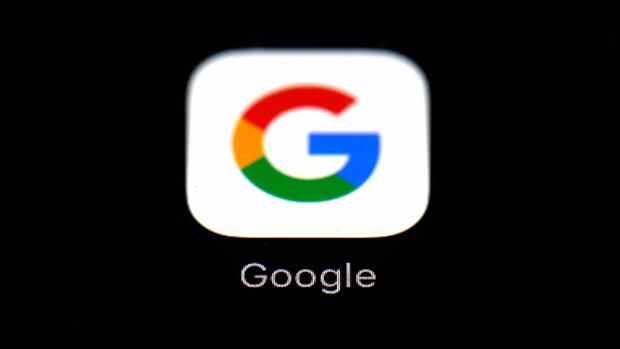With the Android operating system, Google gains a gigantic range.
(Photo: AP)
Dusseldorf Antitrust law is a cumbersome instrument. As early as 2013, the European Commission received a complaint about Google’s business practices with the Android operating system. In 2018, the competition authority found that the group had abused its market position and imposed a record fine of 4.3 billion euros.
Whether this assessment will hold up will not be clear until 2022 at the earliest: This week the European Court of Justice is negotiating an objection from the internet company – and will then probably discuss it for several months.
However, the consequences of the decision could be far-reaching. Not only is Google’s business model for mobile devices such as smartphones, which shape everyday digital life, up for negotiation. It is also implicitly about the European Commission’s market definition.
This is relevant for further proceedings against large technology groups, especially in the case of Spotify’s complaint against Apple. In addition to the parties involved, the entire technology world is likely to be keeping a close eye on the event in Luxembourg.
Top jobs of the day
Find the best jobs now and
be notified by email.
The main focus of the complaint is the Android operating system, which is being developed under the leadership of Google. At the time of the complaint, the software could in principle be used freely by any company, as it is under an open source license.
However, if device manufacturers wanted to use the Play Store with many millions of apps, they obliged the subsidiary of the Alphabet Group to preinstall several services and offer them prominently. The search mask could be found on the start screen. It couldn’t be more direct.
Without the platform through which users can install WhatsApp and Instagram, Amazon and Zalando, Netflix and Spotify, a smartphone is practically unsaleable in the West. Huawei is now feeling the effects of this, as it has to do without Google services due to the sanctions imposed by the USA and is now threatening to sink into insignificance internationally.
Financing model for a free product?
Google argues that Android will enable a wide range of products and that it will cross-finance the free software with advertising in search engines and services such as YouTube. “Android allows more choice, not less,” said CEO Sundar Pichai after the 2018 EU decision.
However, the EU Commission considers this bundling to be an abuse of market power, which Google undoubtedly has in Europe with a market share of around 70 percent for mobile operating systems.
The group used Android to “consolidate the dominant position of its search engine”, said Competition Commissioner Margrethe Vestager 2018. This has deprived competitors of the opportunity to “be innovative and competitive”.
Google reacted to the decision in Brussels: After some back and forth, users are now shown alternative browsers and search engines. In addition, device manufacturers can license the Play Store independently of other services of the Internet company.
The court has to decide which terms and conditions Google can impose on device manufacturers and whether this regulation is valid. That should remain important beyond the current case: The fight for control rages on.
In a court case in the USA, for example, it became public that the internet company offered smartphone manufacturers considerable financial advantages from 2019 if they did not install an alternative app store.
Apple is also interested in market definition
For its decision, the European Court of Justice has to answer a question that should also be of interest to other companies: How should the various markets for smartphones be defined?
The EU Commission classified Google as an almost monopoly on “licensed operating systems for intelligent mobile devices” because iOS from Apple is not available to other manufacturers. The search engine giant, however, refers to the – albeit high-priced – competition.
The legal assessment of this demarcation should also be relevant for other procedures. The music service Spotify has filed a complaint against Apple, and the EU Commission is currently investigating the case. This is about the payment system, but the market definition will also cause discussions.
One thing is clear: the pressure on Google, Apple and other technology groups continues to increase, regardless of the antitrust and legal proceedings. With the “Digital Markets Act” (DMA), the EU is preparing new rules for how Google, Amazon, Facebook and Apple can deal with the many companies on their platforms. There is great resistance from the corporations.
More: How the EU is attacking big tech’s business models
